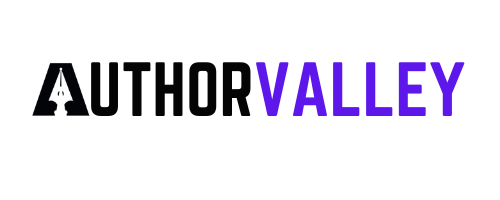Top 10 Writing Softwares Every Author Should Know

There’s a magic to the written word that’s hard to define. But as every author knows, behind the enchanting narratives, the vivid descriptions, and the clever dialogues, there’s a world of drafts, revisions, and an ungodly amount of coffee. And that’s before we even mention those damned distraction demons that just love to play with our focus.
That’s where the right tools come into play, offering a little help to authors in their creative endeavors. I’ve assembled a list of the top 10 writing software tools every author—newbie or bestseller—should know about. These will aid you in organizing your thoughts, polishing your grammar, and helping you write with fewer distractions.
Let’s dive in!
1. Scrivener
For all your drafting needs, Scrivener is a favorite amongst the author community. It’s a comprehensive writing tool that allows you to outline your work, view research as you write, and format for self-publishing. Think of Scrivener as your virtual writing studio, where you can pin your notes on the digital corkboard and track your progress as your masterpiece takes shape.
2. Ulysses
Ulysses combines simplicity with power. This tool offers a distraction-free writing environment, so you can focus on what really matters: the words. You can also easily organize your work into folders and subfolders, making it perfect for managing large projects or series. The cherry on top is its seamless export feature to various formats including PDF, epub, and docx.
3. Google Docs
Don’t dismiss this trusty stalwart. Google Docs may be simple, but its collaborative features are unbeatable. Whether you’re working with a co-author, editor, or beta reader, Google Docs makes sharing your work a breeze. Plus, its autosave feature ensures you’ll never lose a word, even if your computer decides to throw a tantrum.
4. ProWritingAid
Hello, grammar geek’s dream come true! ProWritingAid is more than just a spell-checker—it’s a style-checker. This powerful tool helps with eliminating redundancies, improving readability, and catching those sneaky inconsistencies. It’s like having your very own robot editor who never sleeps.
5. Grammarly
Another tool to keep your grammar in check is Grammarly. Its user-friendly interface provides real-time suggestions to improve your writing. It also helps in enhancing clarity, tone, and engagement. While ProWritingAid dives deep into style, Grammarly excels at catching basic to advanced grammar mistakes, making them the perfect tag-team.
6. Airstory
Plotting and planning have never been easier than with Airstory. It’s a drag-and-drop tool that lets you clip and save your research, plot points, and ideas into project-specific cards. Think of it like online sticky notes that you can rearrange as needed. It’s the organizational tool your chaotic drafts have been crying out for.
7. FocusWriter
For those who need an oasis of calm in the distraction desert, FocusWriter is your go-to. This tool provides a clean, full-screen writing environment to help you concentrate. It also features timers, alarms, and daily goals to keep you on track. No more “just checking” social media.
8. Hemingway Editor
Named after the master of concise writing, the Hemingway Editor helps you simplify your work. It highlights lengthy, complex sentences and common errors. If your writing could use a little Ernest Hemingway-esque brevity and boldness, this is the tool for you.
9. Evernote
Ever had a flash of inspiration at the most random moment?
Evernote is your superhero, ready to capture those ideas before they float away. Synced across all your devices, it’s perfect for jotting down those fleeting thoughts, saving snippets of research, or sketching quick character bios.
10. Reedsy
Last but definitely not least, we have Reedsy. This platform connects authors with professional editors, designers, and marketers. But beyond that, it also offers a free online book writing software that helps you format your book for self-publishing.
And there you have it, my friends. From the first spark of an idea to the final period (or cliff-hanger—no judgment here), these tools can help streamline your writing process, improve your craft, and maybe—just maybe—keep the distraction demons at bay.
I’d love to hear your thoughts. What’s your favorite writing tool? Is there a hidden gem I missed? Share your insights below and let’s make this a treasure trove for authors across genres!
Remember, writing is a journey, often meandering, always personal. And while these tools can enhance your craft, at the end of the day, it’s your passion and perseverance that will truly bring your story to life. So, here’s to you, wordsmiths—may your coffee be strong and your words flow freely.
Keep weaving your magic. Until next time!
Author’s note: I’m here to engage with you all in the comments section, so don’t hesitate to drop your queries or suggestions. Let’s make writing easier, one tool at a time.


